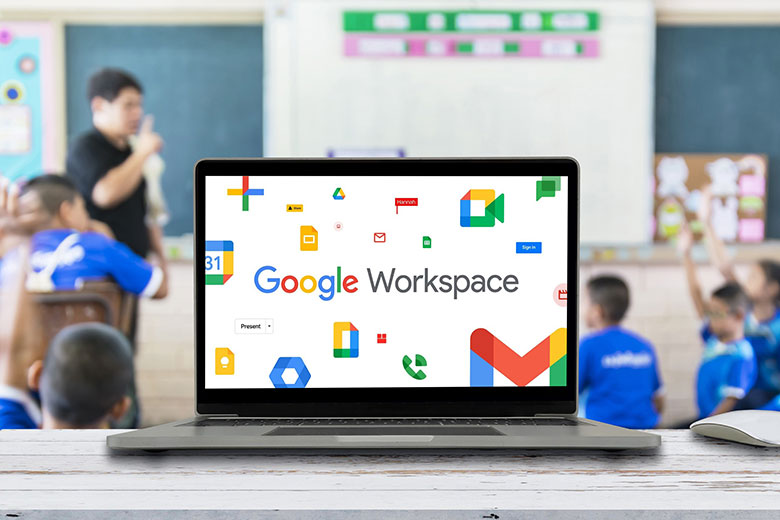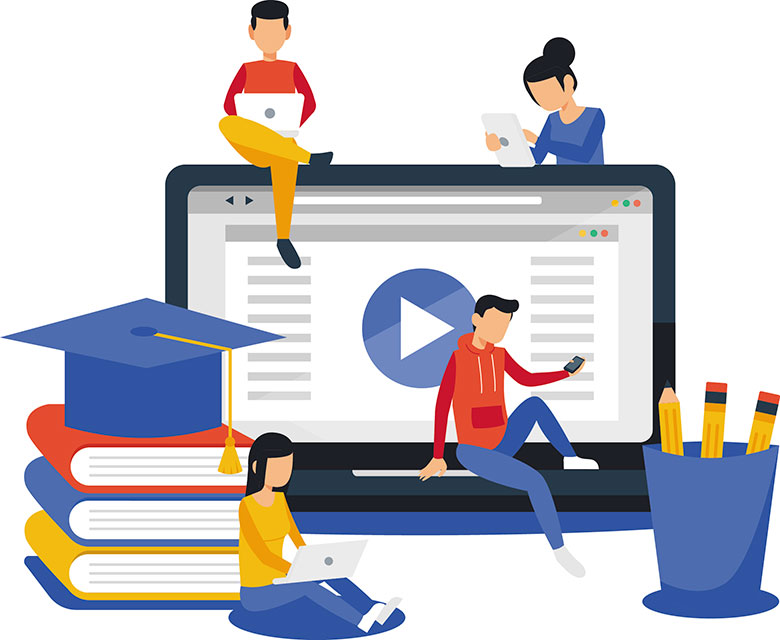Netland Middle East, established in Spain 24 years ago and headquartered in Abu Dhabi since 2020, specialises in IT services and consulting, and as a Google for Education Partner, assists schools and universities throughout the region in expanding their network capacities, reducing time spent on internal processes, and ensuring that they have the very latest and best in equipment and software. Education UAE spoke with Tony Saleh, Managing Director of Netland, initially asking why the organisation chose Google.
“We feel in this new era of learning, Google for Education offers the tools that are required. Its simplicity and reachability between teachers and students are outstanding, with the incredible variety of tools available to collaborate, communicate, discuss and tackle a particular project being phenomenal. In my opinion, it is superior to any other platform.

“The ecosystem that Google has created allows you to cut your administrative staff expenditures by 80%”
“And as far as privacy and data protection, it offers centralised control through the Google console, which is something that is greatly welcomed by educational institutions. And the usage aspect is quite straightforward. It can be picked up by anyone. If you use Gmail, you are most likely already at the fundamental level. You can walk yourself through as you use it and quickly become proficient in it.”
Partnering with Google for Education at a time when the education sector has developed in the United States and in Europe but is a little way behind in the Middle East, Netland is witnessing a terrific uptake in the UAE. “It’s becoming popular super fast,” Tony says. “We have, say, 600 private schools in the country, and Google for Education has already been adopted by 187 of them. And this has just happened in the last four years. It is the dominating platform in the United States and Western Europe, and it is rapidly gaining traction in the Middle East and Eastern Europe.”

In terms of adoption, Google has already signed a government-level deal in Oman for Google Cloud, a component of which is Google for Education, making it the world’s first such agreement at a national level.
Google reached a similar agreement in Kuwait just two weeks ago.
“Google has recently formed a strategic alliance with the Kuwaiti government to support digitisation efforts across the country’s public sector,“ Tony continues. “At Netland, we are confident that Google for Education will be part of that strategy. The eco-system built by Google for education will benefit all schools, private and public. The system offers significant cost reduction. Third-party cybersecurity software licenses, for example, are no longer required. All antivirus software licenses have been removed. The ecosystem that Google has created allows you to cut your administrative staff expenditures by 80%, which makes a lot of sense for a school. Why do you need so many administrators in one school if your system is stable? Currently, most schools have three, four, or five administrators dealing with email phishing and third-party software issues. That is eliminated within the Google ecosystem.”
A Bespoke Strategy
If schools decide to go with Google for Education, Netland provides the licenses with the integration deployment and offers them Chromebooks. It also provides leasing options if there are budget concerns or cashflow problems, an offer that, if not unique, is extremely rare.
“If their budget does not allow for it, we have a solution in the form of Chrome OS Flex, which is a free downloaded version that takes over the operating system and provides just as good an interaction,” Tony says. “We also provide deployment-related training. We deliver training for both teachers and students as needed, but teachers are often the primary focus.

“We feel in this new era of learning, Google for Education offers the tools that are required”
“We can customise a strategy for deployment to each individual institution, depending on their needs, whether they want to go for it all in one shot or just gently phase it in. We have a built-in strategy for these institutions, working very closely with them to deploy the system as a whole but also taking their concerns into account as we progress from introduction to maturity, accompanying them throughout the digital transformation process. Moreover, during the school year, we keep in touch with them regarding upgrades, if there are any updates to train them on and any changes that may be beneficial to the school.”

“We can customise a strategy for deployment to each individual institution, depending on their needs”
A Major Step in the World of EdTech
Interest and feedback from schools are encouraging and evolving rapidly this year. In 2022, it appeared that everyone was being extra cautious, but this year there is a lot of traction for Netland with schools across the UAE. The company is already working on deploying their services in Oman too, as part of its remit to cover the MENA region and some parts of Eastern Europe. “Our key regions right now are the UAE, Kuwait, and Saudi Arabia,” Tony says, “where we are engaged with schools and regulators within the government to provide a risk-free offer for pilot programmes for those schools that do not have Google as fundamental and don’t have any exposure.
“In that programme, we offer them a full-fledged Google for Education licence for 30 days, as well as training for Educator One and Educator Two, which Google requires of teachers. We offer them vouchers to take the test so they don’t have to pay for it. Furthermore, we provide them with the Flex OS Chromebook version for 30 days, in addition to admin training, so that they can understand the value of the price control for both software and hardware.”

While being incredibly cost-effective, Google for Education also eliminates many of the ‘foibles’ associated with Windows
While being incredibly cost-effective, Google for Education also eliminates many of the ‘foibles’ associated with Windows, such as slow boot-up times and a slew of other issues and glitches that Microsoft users are well aware of. A Chromebook boots up in about eight seconds, compared to the variable lengths it takes Windows to ‘jump’ into action, which may be up to two minutes. “If you figure those timeframes for a classroom of pupils over the course of the year, you’re losing about a week to two weeks!” Tony points out.

We are living in a digital world with technology transforming the way we learn and live our lives. But we must never utilise technology just for the sake of it. Technology is an enabler and an enhancer. But for too long in education, it has been seen as something that adds to a teacher’s workload rather than helping to ease it.
Google for Education is a major step in making sure the education sector is able to take advantage of all of the opportunities available through EdTech. It assists enormously in realising the vast potential of technology to transform our schools, providing teachers with the time to focus on teaching, their own professional development, and, critically, cater to the needs of every single one of their students. To find out more, visit www.netlandme.com.

Tony Saleh, Currently, a Managing Director for Netland Middle East headquartered in Abu Dhabi. Served 10 years as Senior Regional Director for world largest telecom vendor and 7 years as GM for two SI companies in the UAE. Tony is now working with educational institutions across the GCC region to help them with their digital transformation.
Netland Middle East


